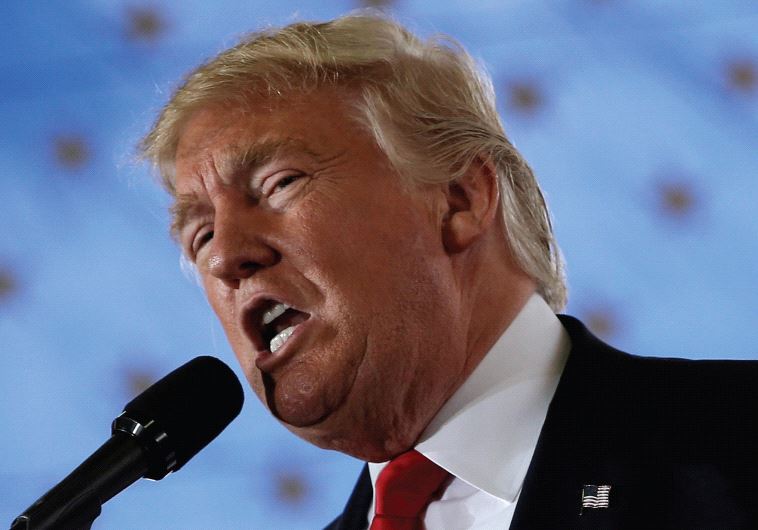Is Trump reversing the gains Republicans have made among American Jews?
American Jews – including traditional Republican voters – are shying away from Donald Trump.
 Republican US presidential nominee Donald Trump speaks at a campaign rally in Ocala, Florida, on October 12
Republican US presidential nominee Donald Trump speaks at a campaign rally in Ocala, Florida, on October 12